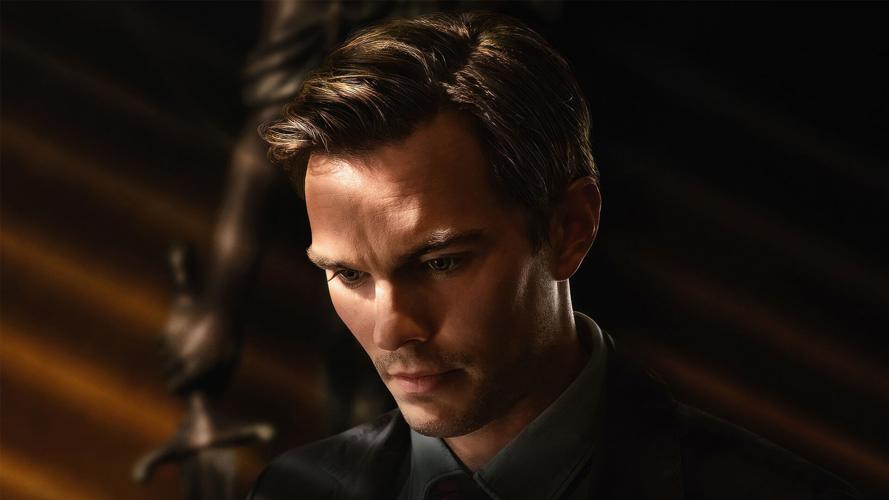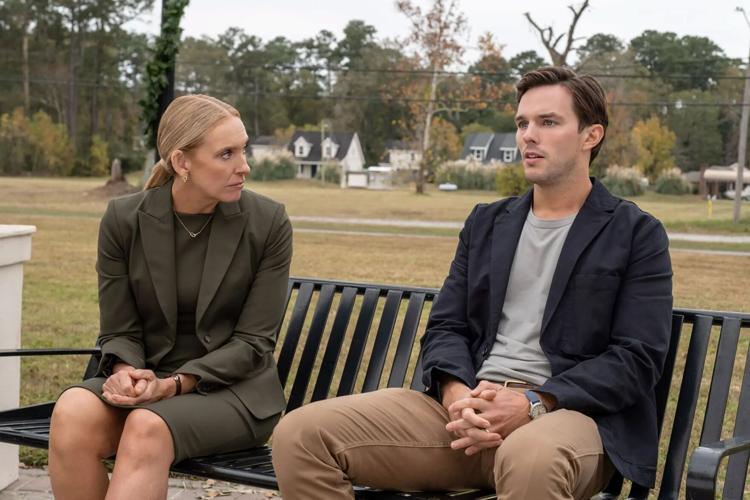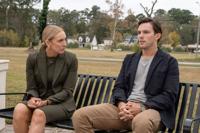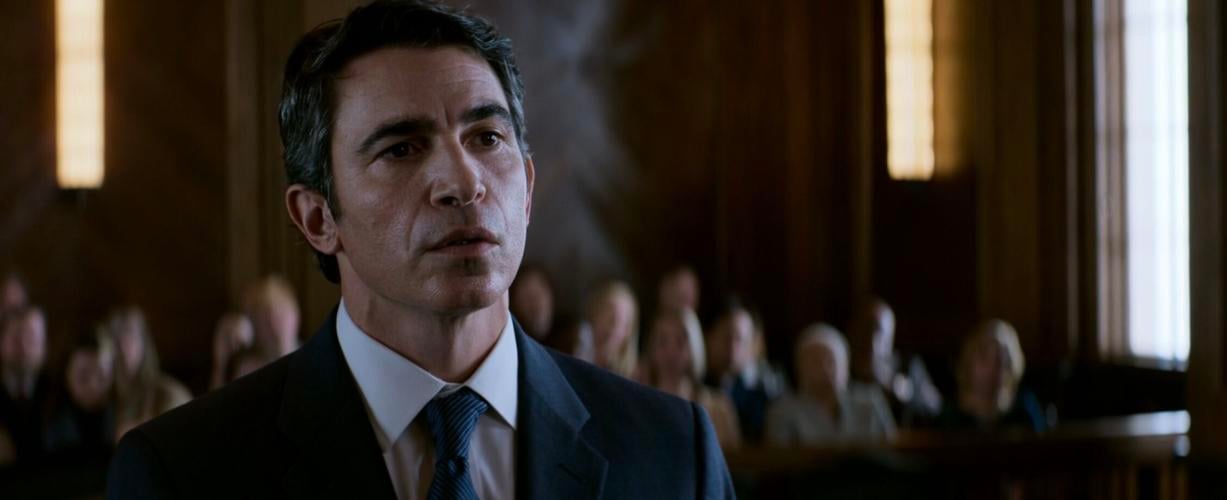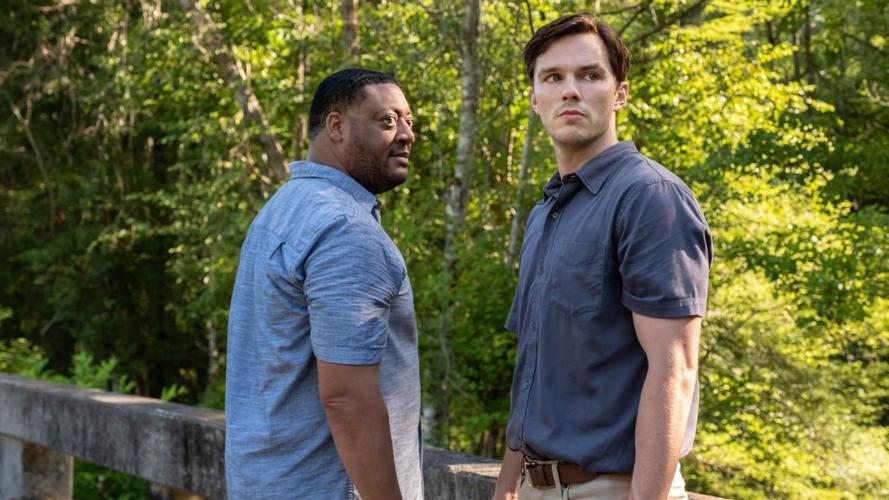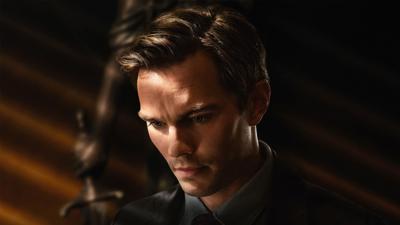This is Clint Eastwood's take on 12 Angry Men (1957) but with a twist. If anyone remembers that Sidney Lumet classic, it's about a jury deliberating a murder case. A lot of the same beats, both about the characters and the case that we saw in that 1957 flick, are repeated in Eastwood's entry in the legal or courtroom drama genre. What was distinct about Lumet's film is that it didn't leave the jury room. Lumet's film was set all in one location. Plus, it also had the wrinkle that it never depicted the trial at all. Eastwood's film is the opposite. Eastwood depicts the trial and continually takes us outside the jury room.
Nicholas Hoult (Mad Max: Fury Road and About a Boy) stars as Justin Kemp, a magazine writer who is married with a baby on the way. He's an alcoholic who nearly died four years ago after getting into a horrible car crash from a DUI. He ended up getting sober and changing his life, when he fell in love with a teacher who gave him a second chance. He's called to jury duty and ostensibly he's the equivalent to Henry Fonda in 12 Angry Men. After the trial, Justin is the only one who believes the murder suspect is innocent. The twist is that the reason Justin thinks the suspect is innocent is because Justin thinks he's the one who actually committed the crime instead.

Toni Collette (About a Boy and The Sixth Sense) co-stars as Faith Killebrew, the prosecutor in the trial who is also running to be the next District Attorney in the state of Georgia. She seems to be a great lawyer and prosecutor, but she also appears to be more concerned with politics and getting a conviction rather than getting the truth. Her position might be the result of structural issues in the criminal justice system.
The script by Jonathan A. Abrams does make a point of name-checking those structural or systemic issues. One of those issues is confirmation bias. It's essentially lazy police-work and lazy prosecution. Some within the system might argue that confirmation bias is due to a lack of funding and resources, and Faith does dismissively make that argument. However, as this film demonstrates, it doesn't cost or take much to do a little extra legwork and poke a lot of holes in the prosecution's case. Yet, that confirmation bias is only raised here because of Justin's potential guilt and him being the lone dissenter in the jury room. If he hadn't decided to go to jury duty or if he hadn't been picked, then an innocent man would've been easily convicted. A "Henry Fonda" type isn't always going to be chosen, so it makes you wonder how often confirmation bias has put innocent men away.

Yet, this film isn't really about this greater systemic question and how flawed the police and prosecutors are. It's mainly about Justin's guilt. Showing the flaws in the prosecution are only a crutch to aide in Justin's guilt and fostering this film's conflict of whether or not Justin's guilt will get the better of him. Justin fears going to prison and being taken from his pregnant wife who recently suffered a horrible miscarriage. As presented though, there isn't enough evidence to prove Justin to be actually guilty. The only way would be to have him confess. Unfortunately, this film ends before reckoning with what would be Justin's trial, which given the fact that he was a juror on the prosecution of the same crime would have made a better third act for this film.
Chris Messina (The Mindy Project and Argo) also co-stars as Eric Resnick, the public defender who is representing the murder suspect. He seems to be a smart guy who cares about his client, but his strategy is to suggest that the woman who died did so by accident. One of the jurors who listens to a lot of true crime podcasts and documentaries suggests an alternative suspect theory and the question becomes why doesn't Eric suggest the same? It's fine if he's someone who's also stretched thin and doesn't have the resources or funding to pursue an alternative suspect. But, the film could've benefited from pointing out Eric's failing in pursuing the alternative suspect theory or doing the legwork that we later see Faith doing.

Again, the film is more about Justin's guilt. In that, Hoult gives a good performance, as a man wrestling with his conflicting feelings like regret and heartache. If this is comparable to 12 Angry Men, then the equivalent to Lee J. Cobb is Cedric Yarbrough (Reno 911! and The Boondocks) who plays Marcus King aka Juror #9 who pushes back against most of Justin's arguments for voting not guilty in the jury room. The film gives Marcus a really great moment with Justin at the crime scene. It made me wish we spent more time with Marcus rather than even Justin.
Rated PG-13 for some violent images and language.
Running Time: 1 hr. and 54 mins.
Available on Max.

